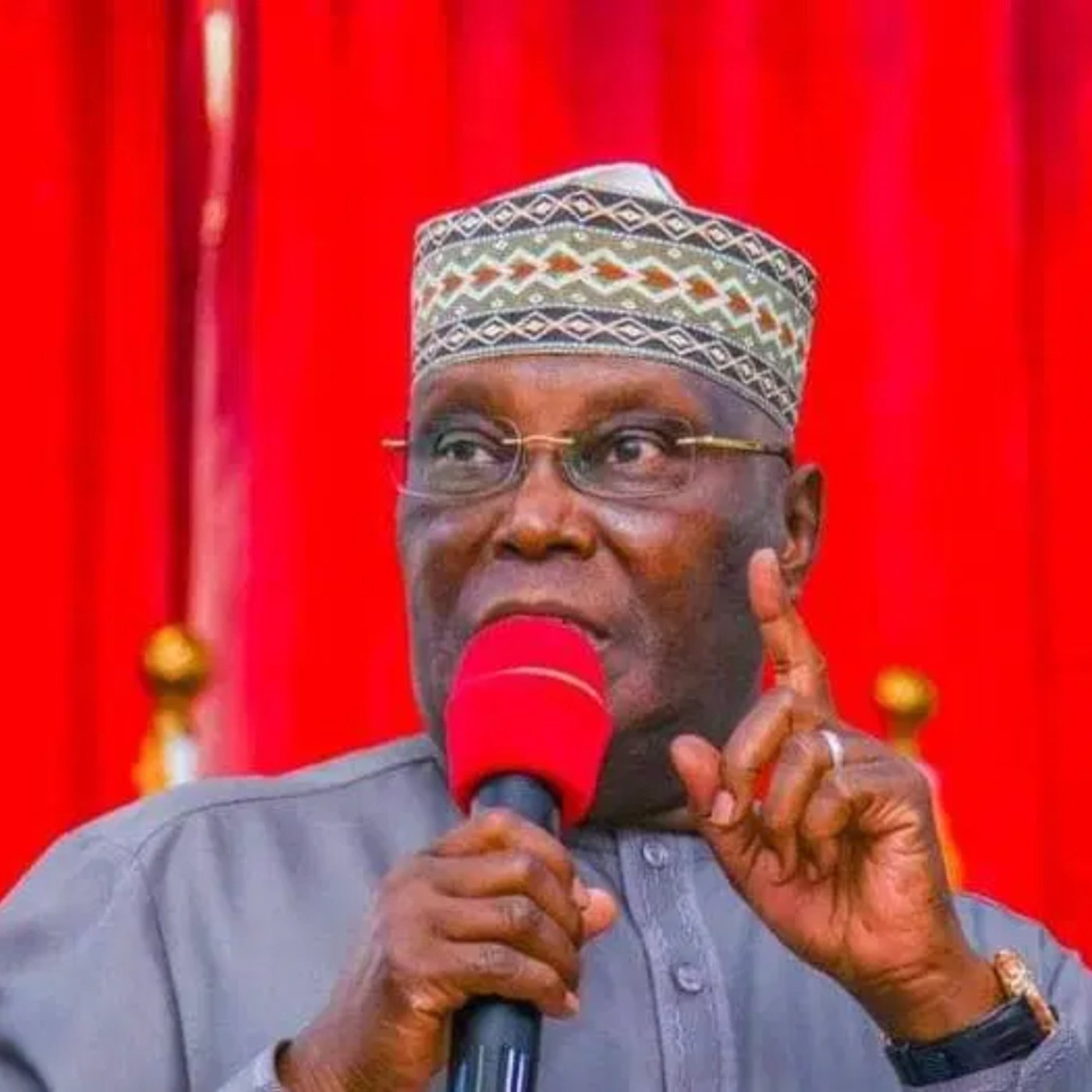
Keep up with the latest news and be part of our weekly giveaways and airtime sharing; follow our WhatsApp channel for more updates. Click to Follow us
Donald Trump’s imperialist aspirations on Greenland, Canada and Panama frequently seem like the ranting of a real estate shark who links foreign and trade policy to a chase for fresh deals.
But there’s method in his expansionist worldview. In his own way, Trump is addressing the national security issues that the US must deal with in a new world that has been moulded by the rise of China, globalization’s disparities, the melting of the polar ice, and the instability of big powers.
On November 6, 2024, US President-elect Donald Trump and his son Donald Trump Jr. attended an election night celebration in West Palm Beach, Florida.
His behaviour also exemplifies the “America First” tenet, which holds that the US should use its might to ruthlessly pursue its limited national interests, even at the expense of smaller, allied nations.
Trump’s thoughts on ending the Panama Canal Treaty in particular demonstrate how concerned the new administration is about foreign countries invading the Western Hemisphere.
This issue is not new; it has persisted throughout American history since the Monroe Doctrine, which was established in the 1820s in response to the threat posed by European colonialists. The problem persisted during the Cold War’s communist hysteria. China, Russia, and Iran are the usurpers of today.
Meanwhile, Trump’s view that the US should dominate its own sphere of influence is a significant clue as to how he may handle major international hotspots, such as the conflict in Ukraine and possibly even Taiwan.
However, his neocolonialism in the twenty-first century is extremely dangerous and seems certain to collide with international law. Additionally, by undermining multigenerational connections and alienating allies, Trump might undermine American influence.
Trump maintains the possibility of using military force.
When a reporter questioned Trump on Tuesday about whether he could rule out using force to retake the Panama Canal or strategically significant Greenland, he added fuel to a nervous globe anxiously awaiting his second term.
“I’m not going to commit to that, no, It might be that you’ll have to do something” Trump said at Mar-a-Lago.
The news that the president-elect would not be deploying the 82nd Airborne across the 49th parallel was a relief to Canadians. He declared that the only way he would absorb the strong, independent democracy to the north and turn it into the 51st state would be through economic power.
On January 7, 2025, President-elect Donald Trump gives a speech at Mar-a-Lago in Palm Beach, Florida.
Trump’s threats, as usual, were laced with a mix of malice and mischief. Additionally, there was a certain element of humour when Donald Jr., the son of the president-elect, piloted the family’s Boeing to Greenland while his father’s bobblehead was resting on the control panel in the cockpit. Shortly before his son landed, the president-elect wrote on his Truth Social network, “Make Greenland Great Again!”
Trump is unlikely to achieve his goals in Greenland, Canada, or Panama. His plan may therefore be to negotiate better terms for the United States, including higher American access to rare earth minerals in Greenland and sea routes exposed by melting polar ice, possibly a discount for American ships travelling the vital waterway connecting the Atlantic and Pacific Oceans,
as well as a recent trade agreement with Canada that could benefit American producers. Even if these prove to be only cosmetic, like his first-term US-Mexico-Canada accord, Trump would be sure to spin them as a huge victory that only he could have won.
Trump’s threats, however, support one of his foreign policy tenets, which is that each nation should vigorously pursue its objectives on its own initiative in a way that will unavoidably benefit powerful, wealthy nations like the United States.
“As president, I have rejected the failed approaches of the past, and I am proudly putting America first, just as you should be putting your countries first. That’s okay — that’s what you should be doing,” Trump told the United Nations General Assembly in 2020.
The icy waters off the southeast coast of Greenland are cut by a ship.
This philosophy stems from Trump’s life, where he has attempted to be the most combative individual in every setting in an effort to “win” over less formidable rivals. This explains his statement that Greenland, a self-governing territory of Denmark’s realm, should be turned up since it is crucial to US security. If not, Trump said, “I would tariff Denmark at a very high level.”
The US decision to cede the Panama Canal in 1999 under a treaty signed by Jimmy Carter was also criticised by the president-elect as foolish and a waste of US might. He made untrue claims that China, not Panama, was running the waterway and that American ships were subjected to discrimination in transit fees. Some Panamanian ports are operated by Beijing-owned companies.
“We gave the Panama Canal to Panama. We didn’t give it to China, and they’ve abused it,” Trump made this statement shortly before Carter’s remains arrived in Washington for Thursday’s state funeral.
Trump sees little difference between US allies and rivals, which is further explained by his tough-guy style. For instance, he bemoaned on Tuesday that Canada, the United States’ closest geographic ally, was squandering the US defence budget and, Consequently, it ought to be a state instead of a country. The US-led liberal order, which views alliances as investments that increase American influence and safeguard democracy and freedom, is rejected by such a viewpoint.
The United States is doubling down in its own backyard while retreating from the rest of the world.
Sending soldiers to seize Greenland or the Panama Canal may go against Trump’s campaign-trail advice that the US should stay out of new international conflicts. However, it is a prime example of the “America First” philosophy. Last May, Hal Brands, a professor of global affairs at the Johns Hopkins School of Advanced International Studies, suggested in Foreign Affairs that “continentalism” may “displace globalism” and substitute a retreat from the old world during a Trump second term.
This would update the philosophy established by President James Monroe in 1823, to which President Theodore Roosevelt subsequently added a corollary – that the United States should protect life and property in Latin American countries.
Trump first raised a firmer line in America’s backyard during his first term, but his recent language on the Panama Canal has caused shock around the world. “Here in the Western Hemisphere, we are committed to maintaining our independence from the encroachment of expansionist foreign powers,” Trump addressed the UN General Assembly in 2018. “It has been the formal policy of our country since President Monroe that we reject the interference of foreign nations in this hemisphere and in our own affairs.”
In line with Trump’s backlash politics, his decision marked a break from the Obama administration. “The era of the Monroe Doctrine is over,” then-Secretary of State John Kerry declared to the Organisation of American States in 2013.
China, Russia, Iran, and their commercial, military, and intelligence alliances in countries like Venezuela, Bolivia, Nicaragua, and Cuba are the focus of the 21st century Monroe reboot.
Given his conventional foreign policy views, Marco Rubio was an unexpected choice for Trump’s secretary of state. However, he agrees with his new president on hemisphere affairs. During a 2022 hearing before the Foreign Relations Committee, the senator from Florida claimed that China was using its economic might to harm local economies and support cartels that bring violence and fentanyl into the United States. “They do this because they know that chaos in Latin America and the Caribbean would severely hurt us, destabilize us, who they view as their primary and central rival,” Rubio said. “We simply can’t afford to let the Chinese Communist Party expand its influence and absorb Latin America and the Caribbean into its private political-economic bloc.”
How Trump’s tough words might backfire
Trump is confident going into his second term and is determined to utilise it to have a lasting impact on America’s place in the world. This is reflected in his expansionist worldview.
And his personification of the principle of the strong triumphing over the weak might possibly affect his approach to other global challenges – most notably the war in Ukraine. In a startling statement on Tuesday, Trump claimed to comprehend Russian President Vladimir Putin’s anxiety over the country he invaded being a member of NATO. The president-elect stated, “Russia has someone right on their doorstep, and I could understand their feeling about that.”
There was already concern that Trump might agree to Russia’s demands. His former national security adviser, H.R. McMaster, documented one time when Putin drew a comparison of his unlawful claims to Ukraine with long-standing US worries for its hemisphere. In his book “At War with Ourselves,” McMaster stated, “Putin used his time with Trump to launch a sophisticated and sustained campaign to manipulate him.” He went on to say: “to suggest moral equivalence between U.S. interventions in Latin America and the Russian invasion of Ukraine, Putin cited the ‘Roosevelt Corollary’ to the Monroe Doctrine.”
Trump’s supporters might find his bombast amusing. However, a lot of outsiders find it haughty. It would be considered geopolitical piracy to try to take control of the Panama Canal. It would be a disgrace to international law to invade Greenland.
Additionally, Canadian Prime Minister Justin Trudeau made fun of Trump’s plans for the Great White North on Tuesday, dealing a fatal blow to his already dead career due to Trump’s tariff threats. He wrote on X, “There isn’t a snowball’s chance in hell that Canada would become part of the United States,” he wrote on X.
This response demonstrates the drawbacks of Trump’s strategy. He has the potential to alienate entire populations by pressuring America’s allies. According to some foreign policy analysts, American pressure and intimidation in Latin America may actually drive countries closer to China.
Furthermore, disparaging remarks about Canada’s superiority as the 51st state are likely to strengthen anti-US sentiment there and make it more difficult for the next prime minister to negotiate with him.
Trump’s disrespect for the patriotism of other people may also sour America’s most enduring ties. Not to mention terrify entire populations. “The majority in Greenland find it quite scary and quite uncomfortable … that the US, in a disrespectful way, is showing that they would like to be buying Greenland or controlling Greenland,” Aaja Chemnitz, a member of the Danish parliament and a Greenland inhabitant, told CNN’s Erin Burnett.
Source: CNN
Please don’t forget to “Allow the notification” so you will be the first to get our gist when we publish it.
Drop your comment in the section below, and don’t forget to share the post.





